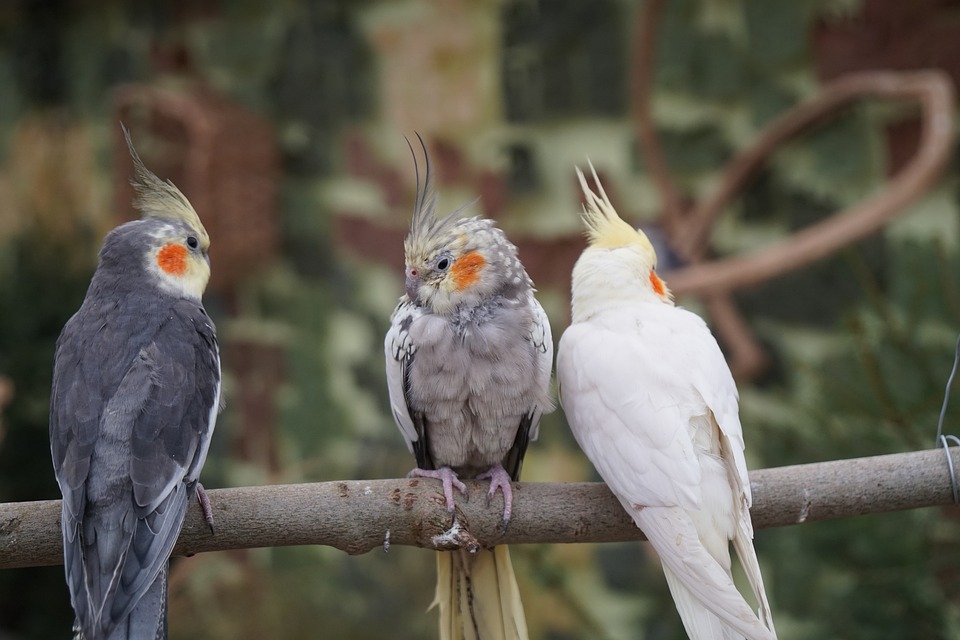Parrots are highly intelligent and social creatures that thrive on routine and stability. They often develop strong bonds with their owners and become accustomed to specific daily activities and schedules. As such, any changes in routine can have a significant impact on their behavior and overall well-being. In this article, we will delve into the fascinating world of parrot behavior and explore how they react to changes in their daily routines. Understanding their behavior can help parrot owners provide the best care and support during times of transition.
Why Do Parrots Rely on Routine?
Parrots are creatures of habit. In the wild, they have a structured daily life that revolves around activities such as foraging, socializing, and resting. This routine provides a sense of security and predictability, allowing them to feel safe in their environment. When parrots are kept as pets, they adapt to their human family’s routine and incorporate it into their own. This routine becomes an essential part of their daily lives, and any disruptions can lead to stress and behavioral changes.
Common Reactions to Changes in Routine
1. Stress and Anxiety: Parrots are highly sensitive to changes in their environment. Any disruptions to their routine, such as a change in feeding time, relocation to a new home, or introduction of new family members, can cause stress and anxiety. Parrots may exhibit signs of restlessness, feather plucking, excessive vocalization, or aggression when their routine is altered.
2. Fear and Aggression: Parrots may react defensively or aggressively when faced with unfamiliar situations or changes in their routine. This behavior is their way of protecting themselves and their territory. It is crucial to approach any changes gradually and provide ample time for adjustment to minimize fear and aggression.
3. Depression and Withdrawal: Parrots are highly social animals and thrive on interaction with their human family. Sudden changes in routine, such as extended periods of isolation or lack of mental stimulation, can lead to depression and withdrawal. Parrots may become inactive, lose interest in their surroundings, or exhibit self-destructive behaviors.
Coping Strategies for Parrots
1. Maintain a Consistent Schedule: It is essential to establish a consistent daily routine for your parrot. This includes feeding, playtime, social interaction, and bedtime. Stick to the schedule as closely as possible, even during times of change, to provide a sense of stability and security.
2. Gradual Introductions: When introducing new elements or changes to your parrot’s routine, do so gradually. This allows them to adjust and adapt at their own pace, reducing stress and anxiety. Whether it’s a new toy, a different feeding location, or a change in playtime, take small steps to ease your parrot into the new routine.
3. Provide Mental Stimulation: Parrots are highly intelligent creatures that require mental stimulation to thrive. Engage them in activities such as puzzle toys, foraging games, or training sessions to keep their minds active and occupied. This can help distract them from the stress of routine changes and provide a positive outlet for their energy.
FAQs: Understanding Parrot Behavior
Q: How long does it take for a parrot to adjust to a new routine?
A: Each parrot is unique, and the time it takes to adjust to a new routine varies. Some parrots may adapt quickly within a few days, while others may require several weeks or even months. Patience, consistency, and positive reinforcement are key during this transition period.
Q: Can changes in routine cause health issues in parrots?
A: Yes, sudden and significant changes in routine can lead to stress-related health issues in parrots. These can include feather plucking, digestive problems, weakened immune system, or behavioral disorders. It is crucial to monitor your parrot closely during times of change and seek veterinary assistance if any health concerns arise.
Q: Are there any circumstances where routine changes are beneficial for parrots?
A: While parrots thrive on routine, introducing minor changes occasionally can be beneficial. It helps stimulate their minds, prevent boredom, and provide enrichment. For example, rotating toys, changing the layout of their cage, or introducing new foods in moderation can help keep them mentally engaged and prevent stagnation.
Understanding parrot behavior and their reactions to changes in routine is vital for providing a nurturing and stable environment. By respecting their need for routine, introducing changes gradually, and providing mental stimulation, parrot owners can ensure their feathered companions remain happy and well-adjusted even during times of transition.









